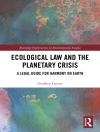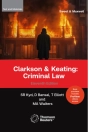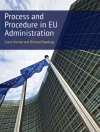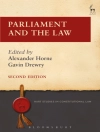Since the ground-breaking publication of the first edition in 2005, when it was among the first legal resources on assisted reproduction technology written for practicing attorneys, there have been dramatic changes in the law, science, and public opinion of ART. The market for ART services continues to grow exponentially and has even become globalized.
As more people turn to assisted reproduction, the legal issues surrounding it have become increasingly complex. The updated edition of Assisted Reproductive Technology takes into account the significant changes to the law and the practice of ART.
Beyond representing patients or clinics, numerous legal problems are arising from the technology’s application. Disputes about disposition of embryos and gametes in divorce are perhaps the most common, but assisted reproduction technology (ART) impacts many other areas of the law, including personal injury, insurance, criminal law, probate and estate planning, and government.
Drawing from multiple legal sources, including the ever-evolving number of court decisions dealing with various aspects of ART, this book presents complex information in a direct, balanced and fair manner. Topics covered include:
- Intrauterine insemination, including state statutes governing consent of husband to use donor sperm
- In vitro fertilization
- Cryopreserved embryos
- Surrogacy laws in the United States
- Posthumous reproduction
- Cellular manipulation: cloning, MRT, and CRISPR
- Regulation of ART
- Standards of care and liability
- Assisted reproduction contracts and documents
A final chapter covers the ABA’s Model Acts Governing Assisted Reproductive Technology. The book also features a glossary defining the most common terms used by the courts and in legal commentary.
A propos de l’auteur
Bruce Hale is a solo practitioner in Newton, Massachusetts. His practice, Modern Family Law, is focused exclusively on matters related to assisted reproduction. Bruce has also served as an adjunct professor of law at Suffolk University Law School and Northeastern University School of Law, teaching the law of assisted reproduction technology at both institutions. Before focusing on this area of law, Bruce became a parent through assisted reproduction (specifically, gestational surrogacy with egg donation). Bruce is a graduate of Northeastern University School of Law, which he attended after spending over a decade as a business management consultant. He has been named a Rising Star by Super Lawyers every year since 2014.












